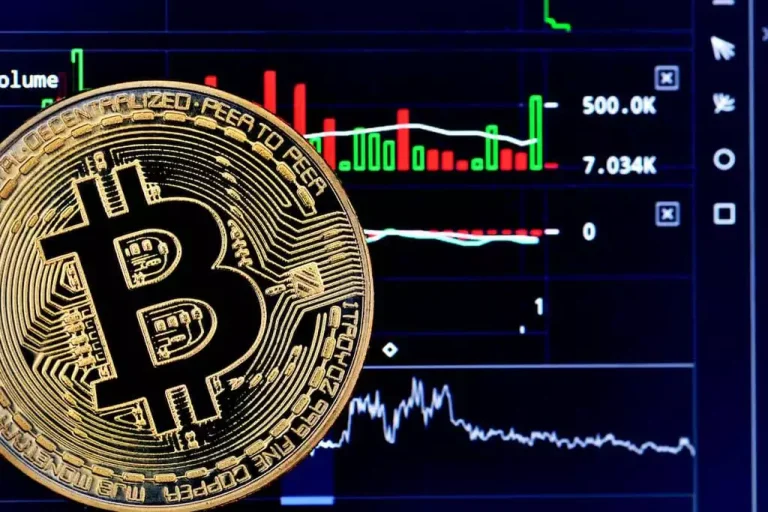Commodity vs Security: are Cryptocurrency Securities? Or Commodities?
Content
Traders can buy and securities vs commodities sell commodities on the spot market or by using derivatives such as futures and options. The distinction between trading basic goods and trading financial instruments seems clear enough. However, when it comes to digital assets like cryptocurrency, the classification becomes murkier.
Is Crypto a Security or Commodity?
Between the two, commodities are typically categorized as alternative investments to the traditional array of stocks, bonds, and cash many investors hold. Securities typically refer to stocks and bonds along with related products like mutual funds and exchange-traded funds (ETFs). However, the legal interpretation of what constitutes a financial security is quite broad. In the case of Howey vs. SEC in 1946, the Supreme Court determined that a https://www.xcritical.com/ contract involving the sale of agricultural land and services represented a security. Further shaping the regulatory landscape for commodities are Self-Regulatory Organizations (SROs) such as the National Futures Association (NFA) and futures exchanges.
Further Reading on Crypto Regulation:

This case resulted in a list of criteria—known as the Howey Test—to determine whether instruments should be regulated as a security. According to federal laws, a financial contract meets the threshold of a security if there is an investment of money made in a common enterprise in anticipation of a profit driven by the efforts of others. If a cryptocurrency is classified as a security, it falls under the purview of the Securities and Exchange Commission (SEC). This may require the cryptocurrency’s issuer to comply with registration and disclosure requirements, similar to traditional securities offerings, to protect investors and maintain market transparency. In conclusion, by peeling back the layers of securities, commodities, and their intersections with cryptocurrencies, you, as an investor, can gain a much more nuanced understanding of this Ethereum burgeoning market.
What are commodities and securities?
The categorization of these digital assets has become a touchstone issue, influencing everything from regulation to market dynamics and even innovation potential within the crypto industry. Commodities, unlike securities, are tangible raw materials that are mined, drilled, or cultivated. These include metals like gold and silver, energy resources such as oil and gas, and agricultural products like wheat and cotton. These physical assets, primarily regulated by the Commodity Futures Trading Commission (CFTC), serve as the backbone of global trade and economy.
Commodities – The Tangible Tradeables

A commodity is a basic good that can be interchanged with other goods of the same type, often a raw material used in producing other goods or services. Meanwhile, a security describes a tradable financial instrument with monetary value. The implications of non-compliance with these regulations can be serious. The SEC has the power to bring civil enforcement actions against those who violate securities laws, and these actions can result in penalties, disgorgement of profits, and injunctions against future violations. Similar to position limits for commodities, securities markets employ volume control mechanisms, disclosure rules and trading oversight to ensure fair access and prevent manipulation.
In the cryptocurrency industry, these benefits could come in the form of capital appreciation or airdrops. SEC attorneys have indicated that staffers may view crypto tokens such as Voyager’s VGX as securities, even where the agency hasn’t reached a formal view. On the other side, the CFTC has long argued that cryptocurrencies such as bitcoin and ether are commodities and can be regulated as such under the Commodity Exchange Act (CEA).
Commodities typically have supply limitations, and each unit is interchangeable with other units of the same commodity. Based on their perception, many investors categorize cryptocurrency as a commodity and a security. Learn more about our Crypto Security to keep your crypto investments safe and secure. A commodity is a raw material or primary agricultural product that can be bought and sold, such as gold, oil, or wheat. Commodities are often traded in futures markets, allowing participants to hedge risks or speculate on price movements.
Commodities are basic goods or raw materials that are either consumed directly or used as a building block to create other products. They are generally interchangeable with other goods of the same type and are produced and traded in large quantities. Checks, bank accounts, and traditional life insurance policies don’t meet the definition of a security.

You are now leaving the SoFi website and entering a third-party website. SoFi has no control over the content, products or services offered nor the security or privacy of information transmitted to others via their website. We recommend that you review the privacy policy of the site you are entering. SoFi does not guarantee or endorse the products, information or recommendations provided in any third party website.
The main body of laws governing securities in the United States is the federal securities laws, including the Securities Act of 1933 and the Securities Exchange Act of 1934. If a cryptocurrency is considered a security, it must comply with these laws, which include rules on registration, disclosure, and anti-fraud. From a regulatory standpoint, these two asset classes fall under different jurisdictions in the United States. Securities come under the purview of the Securities and Exchange Commission (SEC), while commodities are regulated by the Commodity Futures Trading Commission (CFTC). Classifying an asset as a security or a commodity can have significant implications, particularly in emerging asset classes like cryptocurrencies.
- Relatedly, insider trading laws prohibit those with non-public corporate information from profiting from or selectively disclosing the data to influence share prices.
- Securities may be subject to stricter oversight, potentially influencing the market’s stability, while commodities may offer more flexibility and innovation.
- As such, investing in commodities and securities can offer two different paths to diversification.
- Increased legitimacy could encourage marketing growth, leading to a more dynamic and stable market.
- Understanding the intricate world of financial assets, specifically the roles and impacts of securities and commodities, has never been more vital than in the age of cryptocurrencies.
- The regulatory claims for Ether are a grey area; the CTFC Chief, Rostin Beham, considers Ether a commodity.
Depending on your perspective, cryptocurrencies could be considered commodities or securities. How this debate is resolved could have a big impact on the future of crypto. Commodities, on the other hand, are physical goods that are traded on exchanges in wholesale quantities. These can include agricultural products like corn and wheat, as well as precious metals like gold and silver. Securities are primarily traded on regulated exchanges like the New York Stock Exchange or Nasdaq, with strict rules ensuring transparency and investor protection.
Bitcoin is widely regarded as a decentralized digital currency or cryptocurrency, designed to operate as a peer-to-peer electronic cash system without the need for intermediaries like banks or governments. The best bet is to work with a team of experts like the one at INX to help you through the process. INX provides a complete security tokenization service, including registration with the SEC and helping companies comply with all regulations. On the other hand, the SEC chair, Gary Gensler, thinks that Ether and other proof-of-stake tokens should be considered securities.
Visit here to learn more about our full range of services and how we can help secure your investments and Digital Assets. However, the debate still needs to be settled on whether cryptocurrencies constitute commodities or securities. However, considering all the aspects, one can deduce a one-size-fits-all solution for cryptocurrencies. A few cryptos have commodities like the one features, while others are closer to security. Generally, the prices of commodities are highly volatile as they depend on uncontrollable factors like weather and geopolitical situations. Moreover, returns on commodities are solely dependent on price appreciations.

